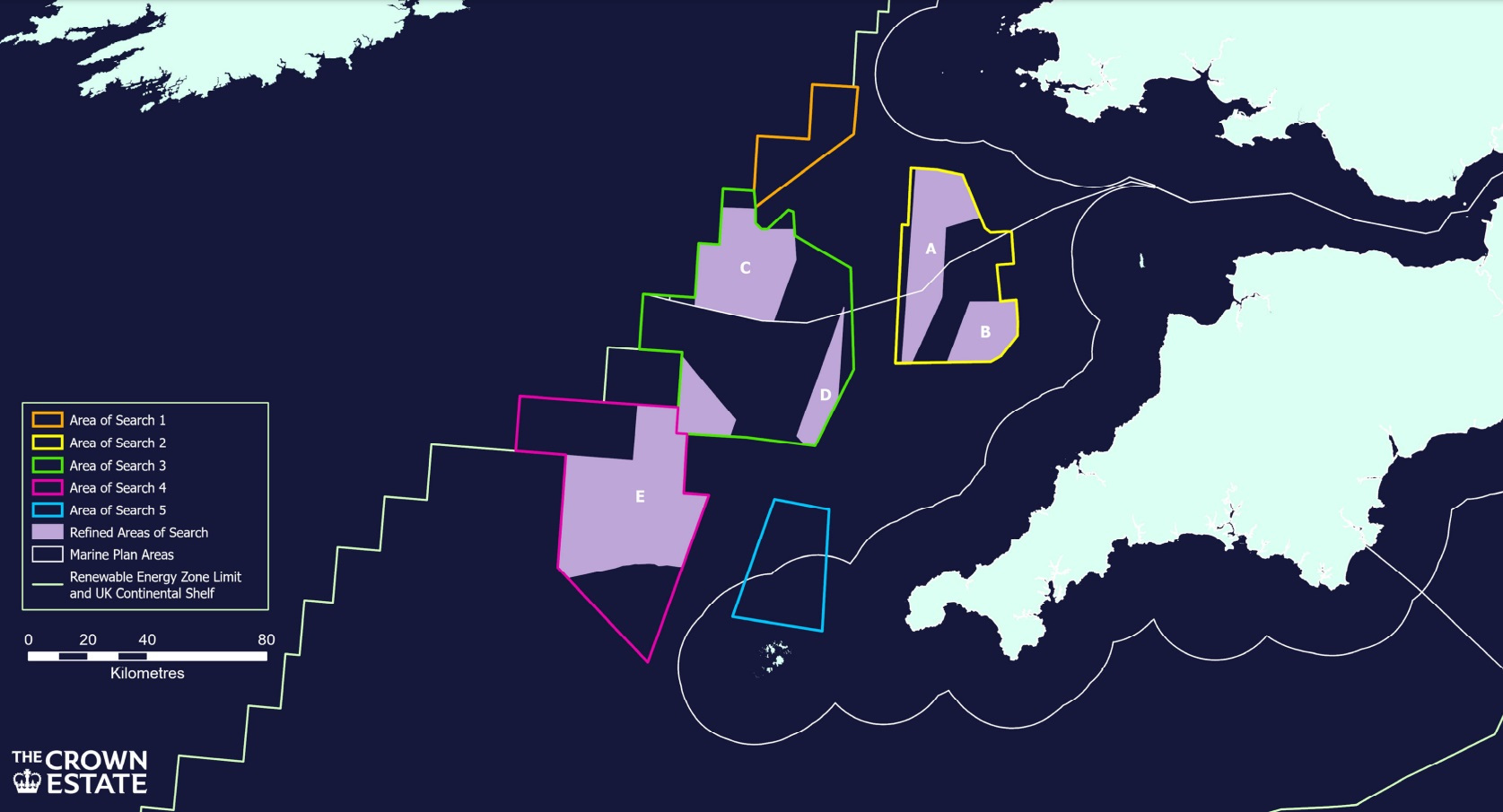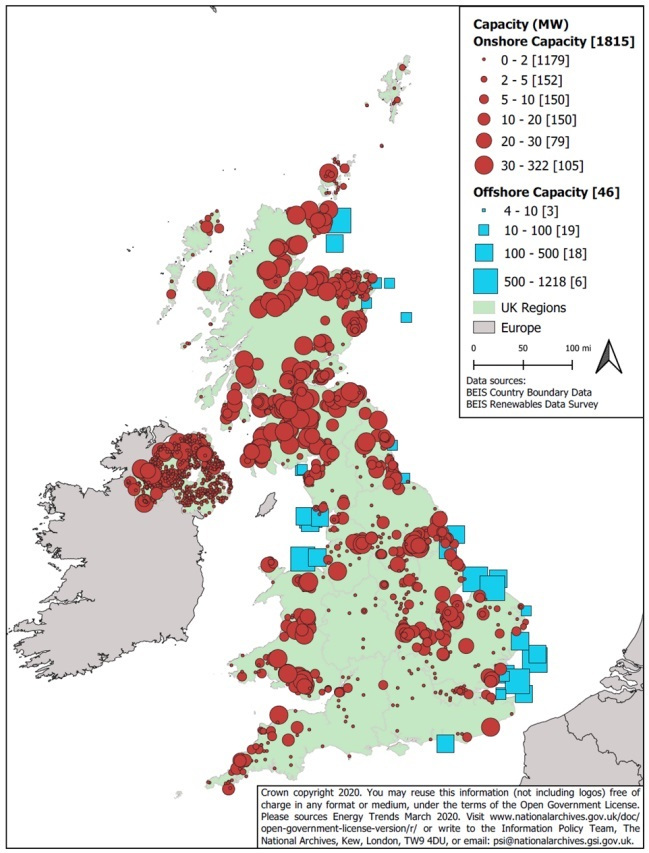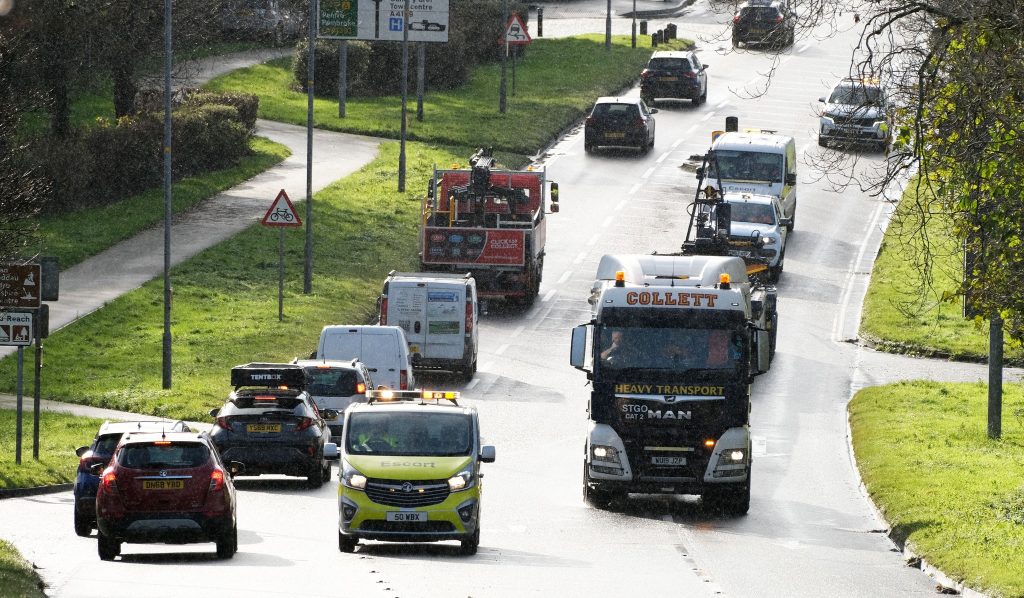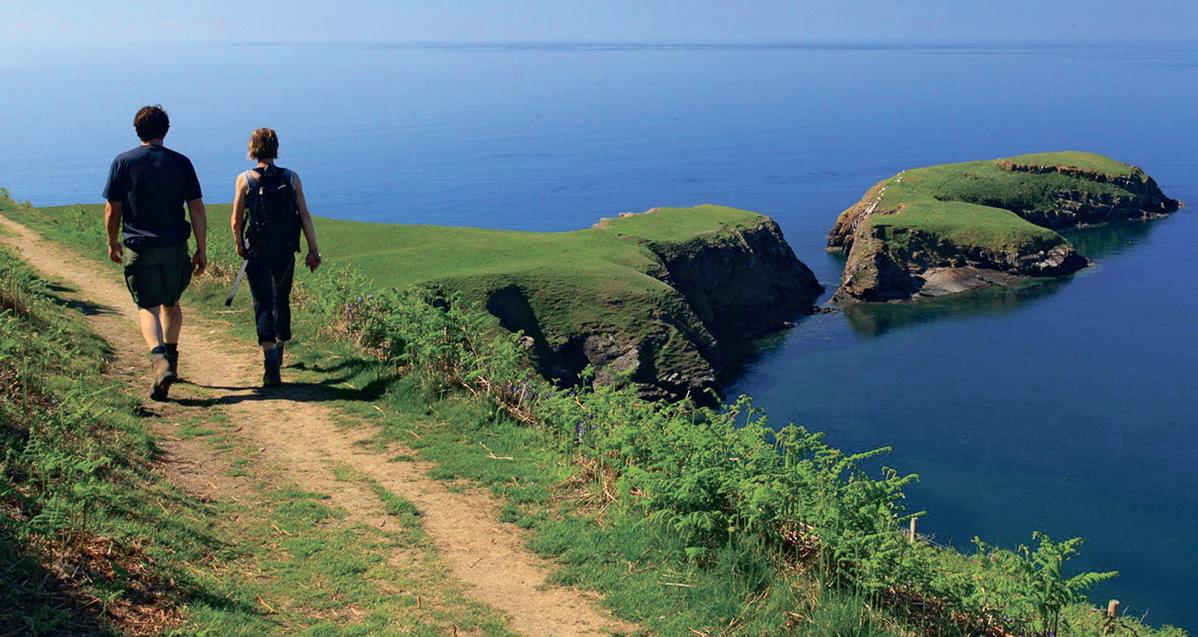News
How Crown Estate surveys will dramatically speed up offshore wind projects

THE CROWN ESTATE has decided to invest in offshore wind surveys in the Celtic Sea, which will help the UK floating wind sector to move towards commercial arrays. It has issued contracts for the first metocean surveys off the southwest coast of England and Wales.
The survey data in the Celtic Sea will cut the cost of bidding into the lease auctions and reduce the number of additional surveys required later in the development process.
This will shorten project timelines and reduce costs.
The UK is looking to install 4 GW of floating wind in the Celtic Sea by 2035, and the recent lease auctions have shown that competition is driving up bid prices. The full survey programme will analyse seabed properties, wind, wave, and current patterns, as well as marine wildlife.
UK Celtic Sea – Refined search areas for offshore wind

The surveys should help developers refine the layouts of arrays and anchor designs, key factors in the scaling up of floating wind projects, Tom Hill, program manager at Marine Energy Wales and chair of the Celtic Sea Developer Alliance, said.
The Crown Estate “has taken a very open, collaborative approach” towards engaging with prospective developers and stakeholders, he said.
Developers will need to demonstrate that they have the financial and technical capability to deliver projects at scale, a spokesperson for the Crown Estate said.
Early access to the data will offer “substantial” cost savings for developers, avoiding the need to recruit internal survey teams, Simpson said.
Developers will be two to three years ahead of where they would have been in metocean and foundation understanding, while access to key bird and mammal data will reduce consenting risks, she said.
In a further boost for developers, the Crown Estate will run the Habitats Regulation Assessment (HRA) process before the auction, Simpson noted. By comparison, the HRA for leases issued in Round 4 auctions in early 2021 was only completed recently, finally allowing the seabed rights to be awarded in January.
UK onshore, offshore wind capacity in 2020

In workshops, developers requested further information in the surveys on potential export cable routes, in line with plans for grid expansions under the U.K.’s Holistic Network Design (HND) 2 review. Led by National Grid ESO, the HND 2 review is due for completion later this year.
Investments in local authorities, power grids and supply infrastructure will be required to ensure Celtic Sea projects are delivered on schedule. Across the UK, local authorities are under-resourced to handle the surge in renewable energy applications expected in the coming years.
Consenting is a major hurdle in Wales as the consenting authority, Natural Resources Wales, “is not currently adequately resourced to handle the volume of applications expected in the coming months,” said Hill.
In addition, grid capacity in Wales needs major investment or “there is a danger developers will choose to go elsewhere”, he said. Proposed grid reinforcements will be set out in the HND 2 review.
An estimated 1 billion pounds ($1.2 billion) of investments in port infrastructure will also be required to assemble and launch floating wind turbines, according to Marine Energy Wales.
No single port in Wales has sufficient water depth, quayside access, assembly and lay-down space, Hill said. Many developers support a multi-port network as sites such as Port Talbot in South Wales are more suitable for construction and assembly, while others, such as the Port of Milford Haven, are more suitable for operations and maintenance (O&M). The ports will likely need to be within 200-250 nautical miles of project sites, according to the Crown Estate.
For the first time, developers will be required to make early commitments to infrastructure. Project partners must provide an investment plan in their lease bids that supports “an internationally competitive supply chain,” the Crown Estate spokesperson said.
This will determine whether participants can proceed to the final stage of the tender, the spokesperson said.
Business
Bluestone celebrates King’s Award for Enterprise at official ceremony

Pembrokeshire resort recognised as UK leader in sustainable tourism
BLUESTONE NATIONAL PARK RESORT has formally received The King’s Award for Enterprise in Sustainable Development, marking a major milestone for the Pembrokeshire-based resort.
The prestigious honour — the UK’s highest business award — was presented during an official ceremony at Bluestone’s Serendome by His Majesty’s Lord-Lieutenant of Dyfed, Miss Sara Edwards. It recognises Bluestone as the first holiday resort in the country to receive the award for sustainable development.
During the visit, the Lord-Lieutenant met founder and chief executive William McNamara, director of sustainability Marten Lewis, staff members and invited guests, while also learning more about the resort’s long-term environmental strategy and its relationship with the local community.
The award follows an extensive assessment of Bluestone’s environmental, social and economic performance. Judges highlighted major progress in reducing carbon emissions, the resort’s move to a fossil-fuel-free operation for all purchased energy — a first for a UK holiday park — and its adoption of circular economy principles. Bluestone was also praised for its support for the local economy, its work to protect and enhance wildlife, and an internal culture where sustainability is shared across the organisation. Around thirty per cent of the business is staff-owned.
Speaking at the ceremony, Miss Edwards said: “It was a great pleasure to present Bluestone with The King’s Award for Enterprise and to see first-hand the work they are doing. The team’s passion for sustainability and their commitment to protecting the local area in Pembrokeshire shone through during my visit. Bluestone’s work is having a positive and lasting impact, and they should be extremely proud of what they have achieved.”
The recognition comes at a time when the tourism sector is under increasing pressure to balance growth with environmental protection, as travellers place greater emphasis on sustainable destinations.
Marten Lewis, who has led Bluestone’s sustainability strategy, has been central to developing what the resort describes as its “operational blueprint” — combining environmental protection, community partnerships and local economic support. He has also represented Bluestone nationally and was recently congratulated in person by King Charles III at a reception for King’s Award recipients.
Reflecting on the achievement, Mr Lewis said sustainability was fundamental to the way the resort operates. He added that the award recognised years of collective effort across the business and would act as a powerful incentive to continue pushing standards higher.
Chief executive William McNamara said the award reflected a long-standing commitment to responsible tourism. He said that as travel continues to evolve, businesses have a growing duty to protect the places people come to enjoy, adding that national recognition of Bluestone’s approach was a moment of pride for the entire team.
Formerly known as The Queen’s Awards for Enterprise, the programme was renamed following the accession of King Charles III. Since its launch in 1965, more than 8,000 UK businesses have been recognised for outstanding achievement.
Community
Pembrokeshire students speak at national Holocaust Memorial Day event

TWO Haverfordwest High School pupils addressed senior political and religious figures and a Holocaust survivor at Wales’ main commemoration in Cardiff
Holocaust Memorial Day was marked in Cardiff this week with a powerful contribution from two Pembrokeshire students, who were invited to speak at Wales’ national commemoration event.
Awel Jones and Olivia Beal, both Year 13 pupils at Haverfordwest High School, attended the ceremony at the Temple of Peace on Monday (Jan 27) in their roles as ambassadors for the Holocaust Educational Trust.
The pair were asked to deliver speeches reflecting on their work with the Trust and their involvement in the “Lessons from Auschwitz” project, which educates young people about the Holocaust and the dangers of prejudice, discrimination and hatred.
They spoke in front of a distinguished audience that included the First Minister for Wales, Eluned Morgan, the Archbishop of Wales, senior civic leaders and Holocaust survivor Peter Lantos.
The national event formed part of Holocaust Memorial Day 2026, which was held under the theme “bridging generations”, highlighting the responsibility of younger generations to carry forward the lessons of the past as the number of living survivors declines.
Awel Jones and Olivia Beal were the only young Holocaust Educational Trust ambassadors representing Wales at the national ceremony, a distinction described as a significant honour for both the students and Pembrokeshire.
A parent said the occasion was “profoundly emotive and important”, adding that being invited to speak at such a high-profile event was an accolade for the students and a reflection of the strength of Holocaust education work taking place locally.
Holocaust Memorial Day is observed annually on January 27, marking the anniversary of the liberation of Auschwitz-Birkenau in 1945.
Business
Final wind turbine deliveries completed after months of disruption

Last major component reaches site as Dragon LNG and Dragon Energy thank communities for patience
DRAGON LNG and Dragon Energy have confirmed that the final large component for a new wind turbine project has now been successfully delivered, bringing months of complex abnormal load movements on Pembrokeshire roads to an end.
The companies said the final turbine blade was delivered to the site on Wednesday (Jan 28, 2026), marking the completion of all major component deliveries associated with the project.
In a statement, Dragon LNG and Dragon Energy thanked the local community for its patience and cooperation throughout the delivery programme, acknowledging that the operation caused disruption on local roads.

Residents across parts of the county have previously experienced temporary road closures, traffic delays and police escorts as oversized turbine components were transported from the Port of Milford Haven to the site under tightly controlled conditions.
The abnormal load movements required months of detailed planning and coordination, involving route surveys, traffic management, police support and liaison with local authorities to ensure deliveries were carried out safely and with minimal disruption wherever possible.
The companies also apologised for the inconvenience caused during the delivery phase, saying the support and understanding shown by residents had been “invaluable” in allowing the project to reach this milestone.
A number of organisations were involved in supporting the operation, including Pembrokeshire County Council, Dyfed-Powys Police, haulage specialists Collett & Sons Ltd and Green Light Traffic Management.
Local media outlets, including The Pembrokeshire Herald, provided advance notice and updates during the delivery process to help keep residents informed.
With the final major deliveries now complete, Dragon LNG and Dragon Energy said the project would continue to progress to the next phase of construction on site.
-

 Community6 days ago
Community6 days agoCPRW welcomes long-awaited grid report and calls for more transparency
-

 Health6 days ago
Health6 days agoHywel Dda board to consider refreshed health strategy to 2040
-

 Health4 days ago
Health4 days agoHealth Board to decide on future model for nine clinical services
-

 Crime6 days ago
Crime6 days agoHaven Master spared jail after River Cleddau kayak crash
-

 News6 days ago
News6 days agoMilford Haven School placed in special measures after Estyn inspection
-

 Health6 days ago
Health6 days agoWithybush staff fear crèche fee rise will price parents out
-

 Local Government7 days ago
Local Government7 days agoQuestions raised over horse riding licence fees ahead of scrutiny meeting
-

 Business5 days ago
Business5 days agoNew planning rules could block Welsh pubs from running pop up campsites




























